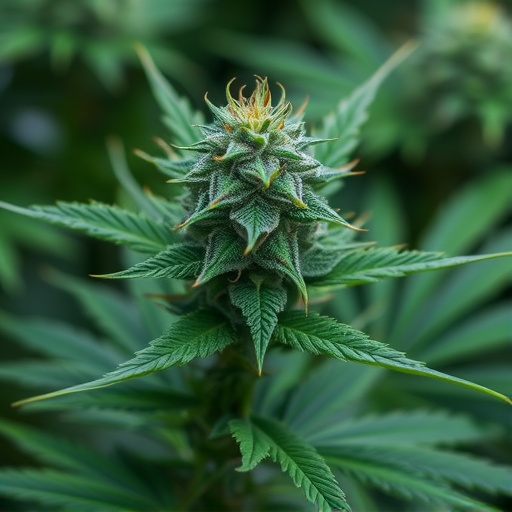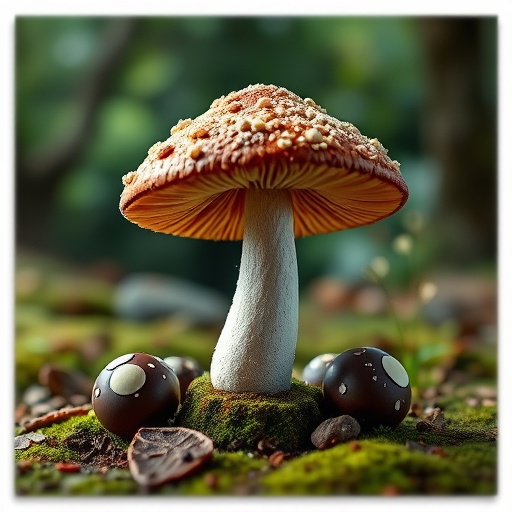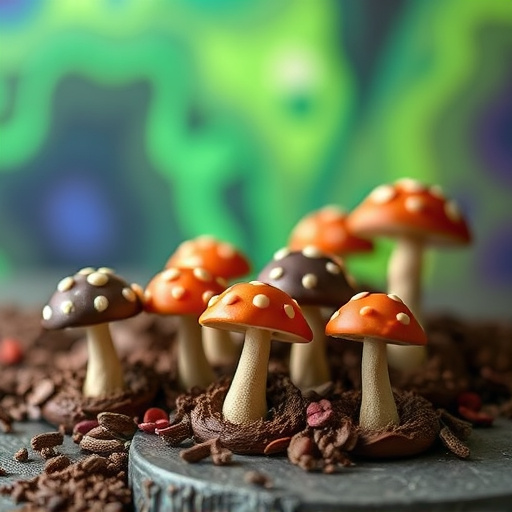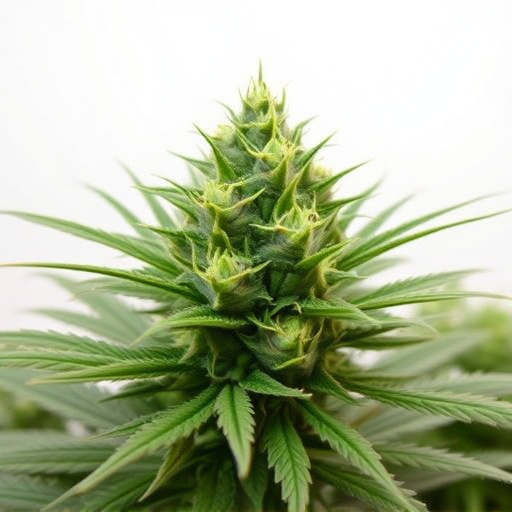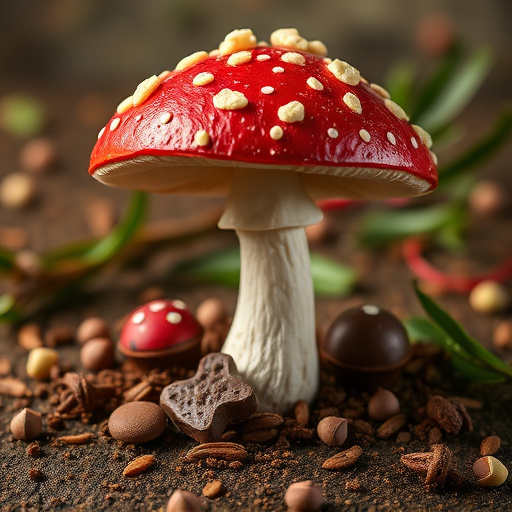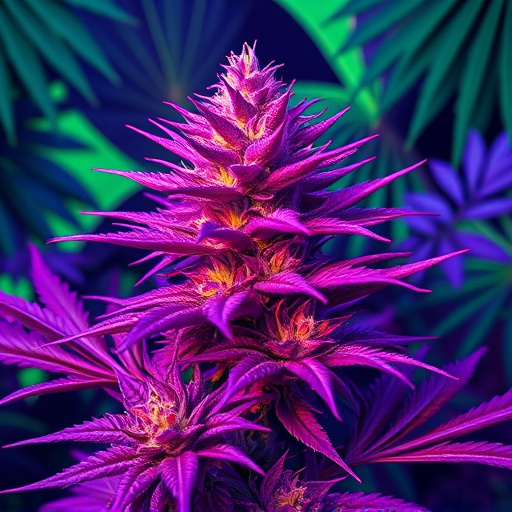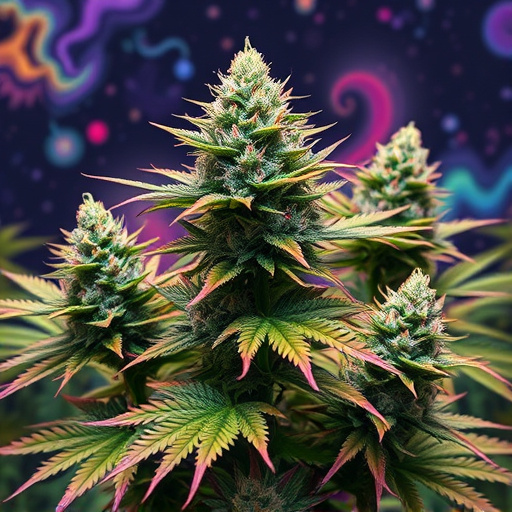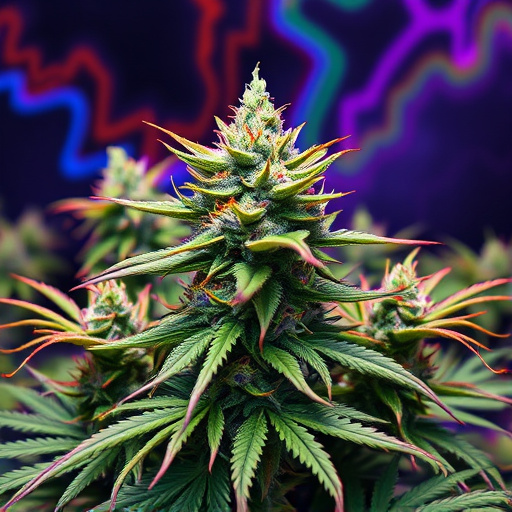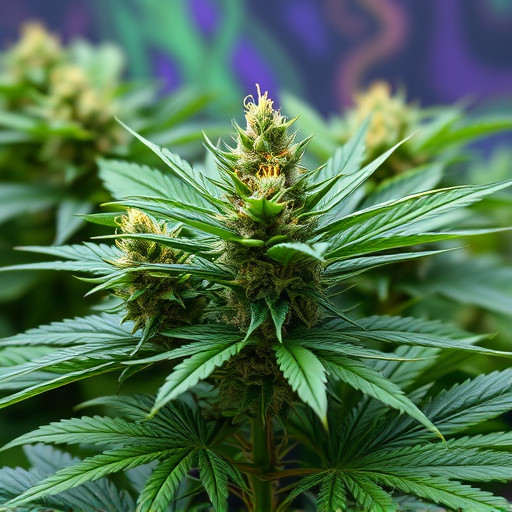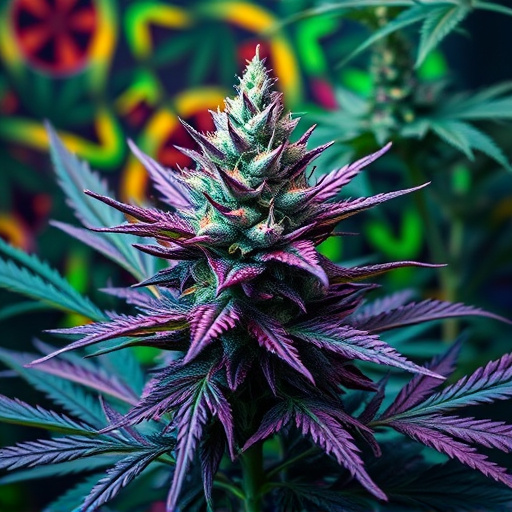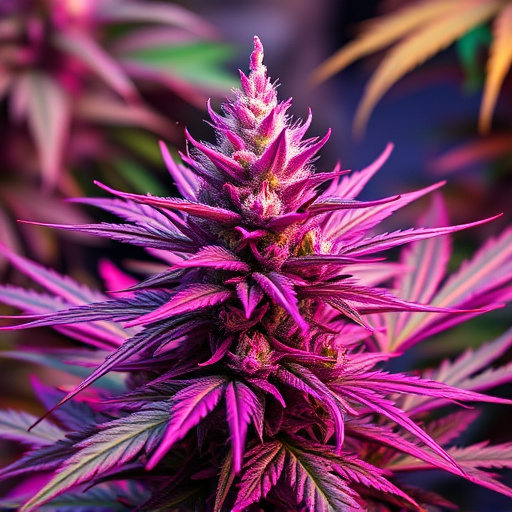Psychedelic cannabis strains, characterized by high THC and compounds like psilocybin or DMT, alter consciousness and emotional states via interaction with the brain's endocannabinoid system and serotonin receptors. Experiences range from enhanced creativity to profound emotional changes. Individual factors like dosage, setting, and expectations significantly impact outcomes. While some users report increased happiness, nature connection, or euphoria, long-term use may lead to adverse psychological effects. Further research is needed to fully understand the complex relationship between these strains and overall well-being, emphasizing a balanced perspective on their potential therapeutic benefits and risks.
Can weed make you happier? It’s a question that sparks debate, especially with the growing interest in psychedelic cannabis strains. This article explores the potential impact of these unique strains on human happiness. We delve into scientific research that delves into the mind-body connection, uncovering findings that challenge and confirm the idea that certain cannabis varieties may enhance well-being. Balancing benefits against risks, we offer a comprehensive perspective on psychedelic cannabis strains and their effect on happiness.
- Understanding the Impact of Psychedelic Cannabis Strains
- Scientific Research and Its Findings on Happiness
- Potential Benefits and Risks: A Balanced Perspective
Understanding the Impact of Psychedelic Cannabis Strains
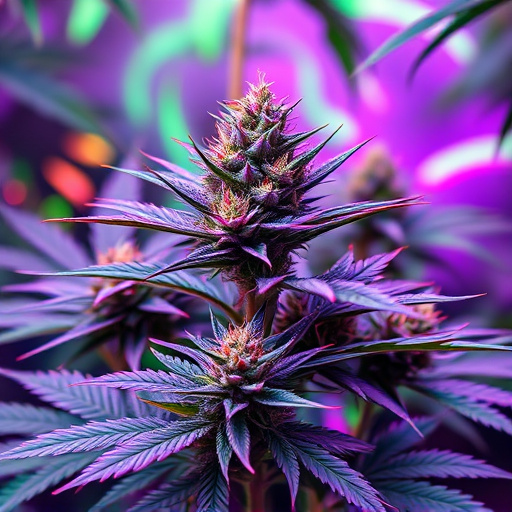
Psychedelic cannabis strains, with their unique chemical compositions, have garnered significant interest for their potential to evoke profound changes in consciousness and emotional states. These strains contain elevated levels of compounds like tetrahydrocannabinol (THC) and especially psilocybin or DMT, which are known to interact with our brain’s endocannabinoid system and serotonin receptors. Research suggests that these compounds can lead to altered perceptions, enhanced creativity, and profound emotional experiences.
While some users report feeling happier, more connected to nature, or experiencing a sense of euphoria after consuming psychedelic cannabis, it’s important to note that the effects can be highly variable and influenced by individual factors such as dosage, setting, and personal expectations. Additionally, these strains may not suit everyone, and long-term use could potentially lead to adverse psychological effects for some individuals. Understanding the complex interplay between these compounds and the brain is crucial before drawing definitive conclusions about their impact on happiness and well-being.
Scientific Research and Its Findings on Happiness
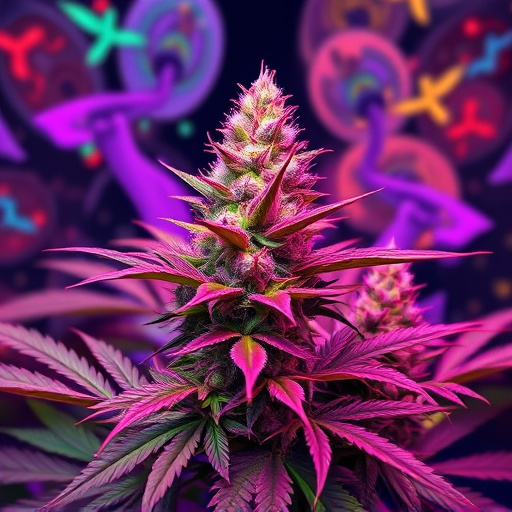
Scientific research has explored the relationship between psychedelic cannabis strains and happiness, offering intriguing insights into the potential benefits of certain compounds found in marijuana. Studies have shown that the active ingredients in cannabis, particularly tetrahydrocannabinol (THC) and cannabidiol (CBD), can interact with our brain’s endocannabinoid system, which plays a significant role in regulating mood, memory, and pleasure.
Research suggests that specific psychedelic cannabis strains, when consumed in controlled settings and dosages, may enhance feelings of well-being and happiness by increasing the release of neurotransmitters associated with pleasure and relaxation. Some studies indicate that CBD, often found in higher concentrations in certain strains, has anxiolytic (anxiety-reducing) properties, which can contribute to an improved overall mood. However, it’s important to note that individual experiences may vary, and further research is needed to fully understand the complex interplay between cannabis and happiness.
Potential Benefits and Risks: A Balanced Perspective
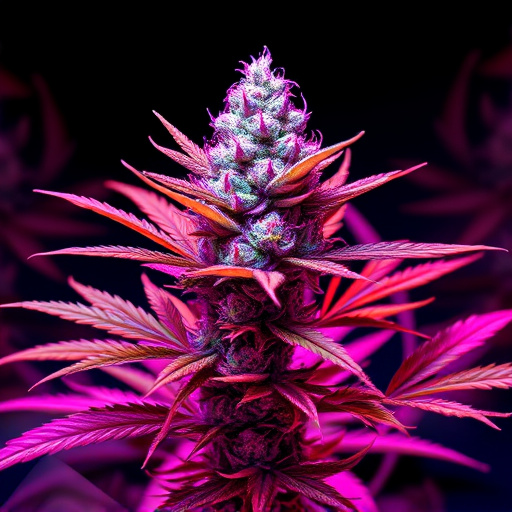
While some advocate for the therapeutic potential of psychedelic cannabis strains in enhancing well-being and promoting happiness, it’s crucial to maintain a balanced perspective by considering both benefits and risks. Research suggests that certain compounds found in cannabis, particularly those present in psychedelic strains, may have positive effects on mental health conditions such as anxiety and depression. These compounds can induce altered states of consciousness, fostering creativity, self-reflection, and a sense of calm. Many users report feeling more connected to their emotions and experiencing heightened sensory perception.
However, it’s essential to acknowledge the potential risks associated with cannabis use, especially for those prone to mental health issues. The effects of psychedelic cannabis strains can be unpredictable, leading to adverse reactions such as anxiety, paranoia, or even hallucinations in some individuals. Regular and heavy use may also contribute to dependence and cognitive impairments over time. Therefore, a cautious approach is advised, emphasizing responsible use and recognizing that happiness is a multifaceted concept influenced by various factors beyond cannabis consumption.
While scientific research suggests that psychedelic cannabis strains may offer potential benefits for mental well-being and happiness, it’s crucial to approach this topic with a balanced perspective. Further studies are needed to fully understand the long-term effects and optimal usage of these strains. Until then, moderation and an informed approach are essential when considering their use. The exploration of alternative therapies should always be guided by professional healthcare advice.


